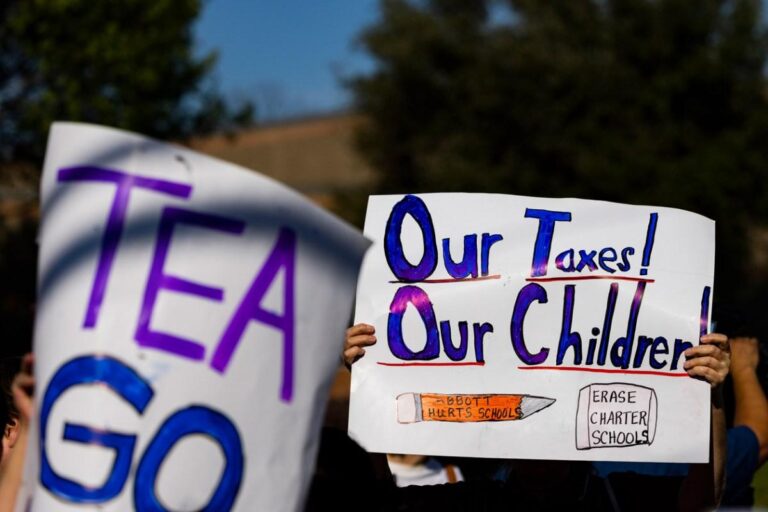The Texas Education Agency (TEA) has announced that its takeover of the Houston Independent School District (HISD) will extend through 2027, marking a prolonged period of state oversight for the nation’s largest school district. This decision underscores ongoing challenges within HISD and signals continued intervention aimed at improving academic performance and governance. The extended state control reflects the TEA’s commitment to implementing reforms and addressing systemic issues that have persisted despite previous efforts.
Houston ISD State Takeover Extended Through 2027 Amid Ongoing Challenges
The Texas Education Agency (TEA) announced that its oversight of Houston Independent School District will extend until 2027, signaling continued concerns about the district’s performance and governance. Since the takeover began, the state has implemented a series of reforms aimed at addressing persistent issues such as academic underachievement, financial instability, and administrative challenges. However, progress has been slower than anticipated, prompting the TEA to maintain its direct control over board appointments and district operations to ensure more stringent accountability.
Key focus areas under the extended state takeover include:
- Academic Improvement: Efforts to boost student outcomes with targeted programs and resource allocation.
- Financial Oversight: Strict monitoring of the district’s budget to prevent deficits and ensure funds benefit classrooms.
- Governance Reforms: Restructuring leadership and increasing transparency in decision-making processes.
Below is a summary of the district’s performance metrics monitored by the TEA since the takeover began:
| Metric | 2019 | 2023 | Target 2027 |
|---|---|---|---|
| Graduation Rate | 77% | 82% | 90% |
| Student Attendance | 88% | 90% | 95% |
| Budget Stability | Moderate Deficit | Balanced | Surplus |
Detailed Assessment of TEA Oversight Priorities and Performance Benchmarks
The Texas Education Agency (TEA) has outlined rigorous oversight priorities designed to systematically address Houston ISD’s ongoing challenges. Central to this strategy is a focus on improving academic outcomes, fostering safer school environments, and enhancing financial accountability. The TEA mandates continuous progress reviews, ensuring that district leadership implements corrective measures aligned with state standards. This includes a heightened emphasis on closing achievement gaps among student demographics and bolstering instructional quality through targeted professional development.
The agency’s performance benchmarks are detailed and multifaceted, reflecting a commitment to measurable growth within set timelines. Key indicators monitored include standardized test scores, graduation rates, and campus safety reports. The table below illustrates the core benchmarks set for Houston ISD through 2027, demonstrating the TEA’s methodical approach to monitoring district recovery.
| Benchmark Area | Target by 2025 | Target by 2027 |
|---|---|---|
| Student Proficiency | 50% proficiency in reading and math | 70% proficiency in reading and math |
| Graduation Rate | 85% | 90% |
| Safety Incident Reduction | 30% reduction | 50% reduction |
| Financial Compliance | Full audit clearance | Sustainable balanced budget |
These priorities and benchmarks underscore the TEA‚Äôs comprehensive approach‚ÄĒbalancing immediate interventions with long-term sustainability goals to ensure Houston ISD steadily advances towards full local control, post-takeover.
Impact on Local Schools and Community Responses to Prolonged State Control
The continued state control of Houston ISD has deeply affected local schools, reshaping administrative structures and daily operations. Many parents and educators have reported a mix of frustration and cautious optimism, as the Texas Education Agency (TEA) implements policies aimed at improving academic outcomes while maintaining strict oversight. Despite increased funding for standardized testing and accountability measures, some community members feel that the state intervention undermines local autonomy and fails to address specific neighborhood needs. Notably, the prolonged takeover has led to shifts in leadership at several campuses, creating uncertainty among teachers and students alike.
Community responses have varied widely, illustrating a complex landscape of opinion and engagement. Local advocacy groups have organized forums and petitions demanding greater transparency and more inclusive decision-making processes. Meanwhile, some neighborhood councils emphasize the importance of collaboration, urging parents and officials to bridge gaps and focus on shared goals. Below is a summary of key community reactions:
- Parental Groups: Call for increased communication and reintegration of local governance.
- Teacher Unions: Advocate for better support and protections amid administrative changes.
- Student Organizations: Push for more input on curriculum and extracurricular offerings.
- Local Officials: Seek balanced approaches to accountability and community engagement.
| Community Stakeholder | Primary Concern | Suggested Action |
|---|---|---|
| Parents | Lack of transparency | Monthly town halls |
| Teachers | Job security | Improved contracts |
| Students | Curriculum relevance | Student advisory boards |
| Local Leaders | Accountability balance | Collaborative task forces |
Strategic Recommendations for Houston ISD Leadership to Accelerate Improvement
Houston ISD leadership must prioritize a multifaceted approach to swiftly meet state requirements while addressing community concerns. Emphasis should be placed on enhancing instruction quality through targeted professional development, adopting evidence-based curricula, and implementing data-driven interventions that propel student achievement. Simultaneously, transparent communication strategies are essential to rebuild trust with parents, teachers, and stakeholders who remain critical to the district’s success.
Key areas for immediate focus include:
- Strengthening principal and teacher accountability with clear performance metrics aligned to student outcomes
- Expanding wraparound services to address socio-economic barriers affecting attendance and engagement
- Leveraging technology to personalize learning and monitor progress in real time
- Enhancing data transparency through user-friendly dashboards accessible to all district stakeholders
| Focus Area | Recommended Actions | Expected Impact |
|---|---|---|
| Instructional Quality | Professional development, curriculum updates | Improved test scores, student engagement |
| Community Engagement | Regular town halls, transparent reporting | Increased trust, collaborative problem-solving |
| Data Utilization | Dashboards, real-time progress monitoring | Timely intervention, accountability |
Insights and Conclusions
As Houston ISD continues under state control through 2027, stakeholders face a critical period of oversight and reform aimed at addressing longstanding challenges within the district. The Texas Education Agency’s extended takeover underscores the complexity of turning around one of the state’s largest school systems. Parents, educators, and community leaders will be closely watching the impact of these efforts on student outcomes and the district’s path toward restoring local governance. Houston’s educational future now hinges on sustained collaboration and accountability as the state maintains its role in guiding Houston ISD forward.




